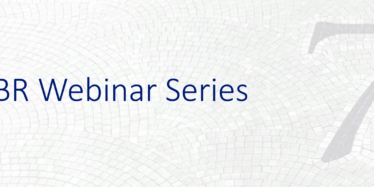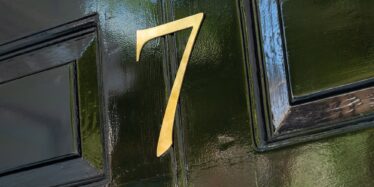Instructing Jeremy Pendlebury
For more information please contact our clerks by calling +44 (0)20 7242 3555.
Jeremy Pendlebury’s practice comprises clinical negligence, personal injury and professional negligence; together with a niche practice in Sports Law.
He is consistently (and currently) rated as a leading junior in both the Chambers & Partners and Legal 500 directories.
The majority of his cases involve injuries of maximum severity; and he regularly appears against Silks. He has a reputation for building a good rapport with clients and being a fighter in court. He brings extensive medical knowledge and sound tactical judgment to his clients’ advantage.
Jeremy is also an accredited mediator.
Jeremy was awarded the ‘Personal Injury and Clinical Negligence Junior of the Year’ Award at the Legal 500 UK Awards 2020.
Legal Expertise
Clinical Negligence
Jeremy’s principal area of work is clinical negligence; and he is presently instructed mostly on behalf of claimants. His major sub-specialty continues to be birth injury / neonatal brain damage cases.
Jeremy’s caseload this year has included: obstetrics, neonatology, accident and emergency, spinal surgery, intensive care, general practice, neurology, gynaecology, orthopaedic surgery, radiology and paediatrics.
He was very recently successful in the Supreme Court acting on behalf of the Claimant in Darnley v Croydon Health Services NHST, a case involving clinical negligence re triage of head injuries and the also the general duty of care of non-clinicians in hospitals.
Notable Clinical Negligence cases
Darnley v Croydon Health Services NHST (Supreme Court, October 2018)
Clm who had suffered head injury, attended A&E and was wrongly informed the wait would be 4-5 hours, when he should have been told it would be up to 30 minutes. He left after 19 minutes and went home, where he suffered a deterioration and despite prompt surgery he suffered permanent serious brain damage. Issues were (i) whether Trust (by receptionist) owed a duty of care re incorrect information and (ii) whether scope of duty extended to the brain damage suffered, given that he left A&E. Supreme Court held “yes” to both issues in favour of Clm, overturning the decision at first instance and the majority in the Court of Appeal.
Champion v Cardiff & Vale Uni Local Health Board (Settled 2018)
Clm suffered brain damage (but no physical deficit) due to acute hypoxia in the last minutes of labour. Liability previously agreed and approved 65:35 in Clm’s favour. Primary issue on quantum was whether award for future care, case-management etc should be by PPO or LS. Other main quantum issues were (i) future earnings potential (actual & hypothetical – as Clm had gardening “business”, really run by Dad); (ii) nature of future care, as Clm drove and had some independence; (iii) Deputyship costs. £5.95 million.
Hudson v North West Anglia NHSFT (Settled 2018)
Clm underwent vaginal surgery and contracted deep infection of surgical wound. Clm attended Hospital and GP re pain. Infection became necrotising fasciitis and Clm suffered significant life-changing tissue loss. Action against hospital and GPs defended on both breach and causation. Defs argued NF would have occurred i.a.e. Causation was extremely complicated re onset of NF and re likely success of earlier treatment and likely damage.
Dickinson v Cardiff & Vale Uni Local Health Board (Settled 2018)
Clm (unknowingly pregnant) underwent spinal surgery for back condition and suffered unusual complication requiring further operations; and suffered poor outcome. Negligent failure to administer pre-surgery pregnancy test eventually admitted. Later surgery would not have had complications. Clm terminated pregnancy due to effect of multiple anaesthesia. Clm suffered complex pain syndrome resulting in significant “disability”. Main issues on quantum were whether (a) bladder & bowel symptoms were due to surgery, (b) likely level of function and (c) need for care and equipment after proposed multi-disciplinary rehab.
Personal Injury
Jeremy has practiced in PI for some 35 years. His caseload largely comprises catastrophic injuries, fatal accidents and complex and unusual cases in road traffic, highways and employer’s liability cases. His clinical negligence practice considerably assists his grasp of the medicine underlying the injuries suffered – particularly in cases of exacerbation of pre-existing conditions. He enjoys a sub-specialty in RSI / CRPS type cases. He acts equally for claimants and defendants and receives instructions from leading firms in the PI field.
Notable Personal Injury cases
Woodward v Ceva (Settled 2018)
Claimant operating a man-up truck whilst colleague was taking photographs from the raised platform, when a moving ceiling gantry struck the truck. Claimant sustained serious multiple injuries (including psychological damage) and despite a return to work, went off work again and did not return. Primary liability not in dispute but contributory negligence argued. Quantum issues concerned (i) whether Clm suffered organic brain damage; (ii) the extent of persisting physical deficits; (iii) extent of future earning capacity; (iv) prognosis re psychological injury.
Hinkins v O'Rourke
Clm gave first aid to colleague, who was crushed to death at work due to negligence of employer. Clm gave evidence at inquest and given leave for psychological upset. Three years after death, employer made a safety video for which Clm was consulted, in which the effect of the death was discussed by the colleague’s widow. Two years after video distributed, Clm argued negligent exposure to video causing exacerbation to persistent PTSD symptoms since the death, permanently preventing him working on building sites. Legal issues concern whether Clm is primary or secondary victim; and limitation. Claim withdrawn in 2018 after Defence served.
Sports Law
Jeremy has developed a niche practice in sports law, resulting from his PI work. His caseload has included career-ending injury to sports professionals, “professional foul” cases, negligent referee cases, and negligent coaching cases. Whilst much of this work would in the past have been categorized as personal injury or professional negligence work, Jeremy recognizes that participation in sport has become more widespread, more specialized, more technical and more ‘professional’ in approach. His own participation in the ‘adrenaline’ sports of windsurfing and kitsesurfing (and formerly American Football) gives Jeremy a perspective on the sport-person’s mindset.
Notable Sports Law cases
Moorhouse v UK Parachuting (settled 2018)
77 year old Claimant seriously injured on landing in a tandem jump. Tandem instructor landed off the DLA at high speed, having exited the aircraft in thick cloud. Def claimed Claimant has misrepresented his medical history and sought to avoid liability.
Cudicini v Bernard (settled 2017)
Clm, a Spurs (and former Chelsea) GK, suffered fractures to pelvis and both wrists in an RTA. His contract (£1.375 million per annum) expired whilst in rehab; and he was offered £672,500 pa, which he accepted as he did not know if he would play again. He recovered well but never returned to starting GK. Quantum issues were (i) annual value injured versus uninjured (Def argued £672,500 was his true value i.a.e.), (ii) taxation on “Image Rights”; (iii) contrib. Case settled, after two RTMs, for £1.875 million (net of contrib and 50% tax).
Court of Protection
Jeremy regularly represents children and individuals who do not have capacity and he is very experienced in cases involving those with acquired brain injury. He has appeared in the Court of Protection challenging treatment decisions on behalf of families of patients with persistent vegetative state and for those who do not possess capacity. His extensive knowledge of medicine and forensic approach have been recognised as a real advantage to his clients in complex cases involving difficult medical issues. Jeremy is consistently cited as a leading practitioner in the Legal 500 and Chambers directories in clinical negligence, which is one of his key areas of practice.
Instructing Jeremy Pendlebury
For more information please contact our clerks by calling +44 (0)20 7242 3555.
For help or advice please call +44 (0)20 7242 3555 or complete the form below
A member of the Clerking team will help you resolve your request.
Frequently asked questions
Do you have an out of hours number?
Yes, please call Chambers mainline number +44 (0)20 7242 3555 and you will be directed to the out of hours phone lines.
How can I find out whether 7BR can take my case?
As a direct access client, please visit our direct access page and complete the initial form, a member of the clerking team will then be in touch to discuss the next steps.
Will my barrister deal with all the correspondence?
Some barristers have the ability to “conduct litigation” for direct access clients. Our clerks will be able to assist you as to which of our members are trained and accredited to do so.
How do I instruct a barrister?
Please visit our direct access page for the initial steps on instructing a barrister, or contact our clerks on +44 (0)20 7242 3555.






